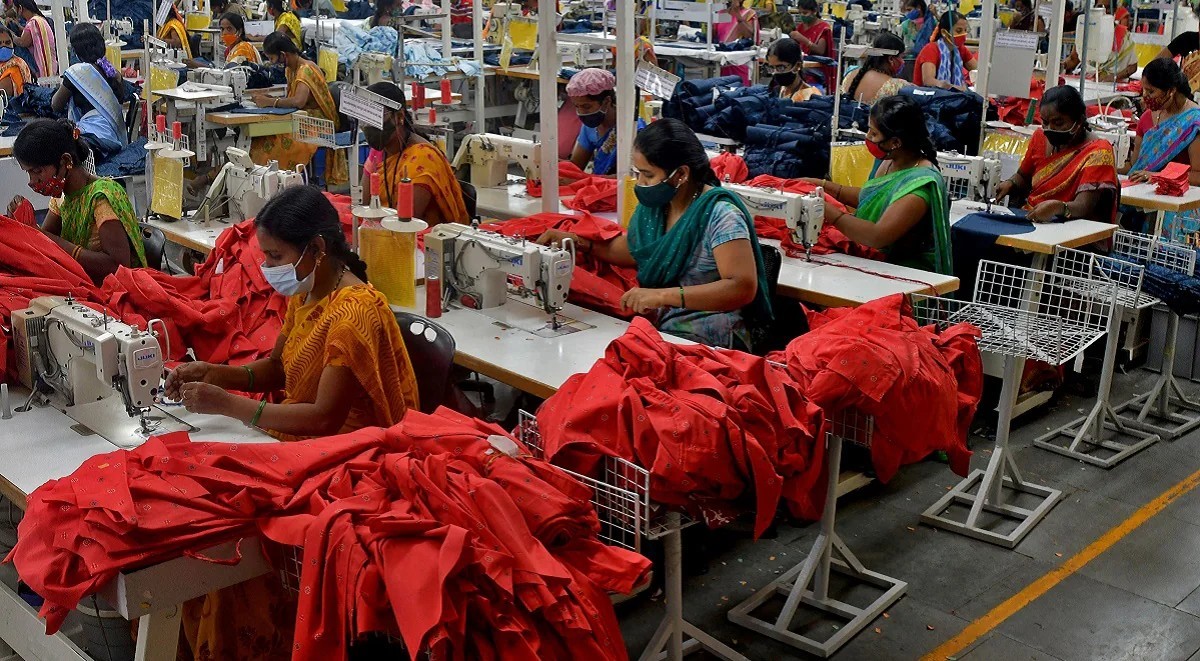India’s Textile Industry Faces Challenges, Government Pushes Reforms
Why in the News?
- India’s textile industry is struggling due to declining exports, rising production costs, and competition from China.
- The government has introduced PLI schemes, mega textile parks, and import duty reductions to boost competitiveness.
- Focus on sustainability and innovation for long-term growth.
Challenges Facing India’s Textile Industry:
- The Indian textile industry is struggling due to stagnant demand, rising costs, and global competition.
- Cotton supply is fragmented, affecting production efficiency.
- High dependence on imports for raw materials like polyester and specialty fibers.
- Lack of modern infrastructure and outdated technology limit competitiveness.
- Exports have declined, with apparel production falling by 12%.
Government Efforts to Boost Competitiveness
- PLI Scheme (Production-Linked Incentive) to boost textile manufacturing and exports.
- Mega Textile Parks initiative to create integrated manufacturing hubs.
- Reduction in import duties on raw materials to ease production costs.
- Promotion of technical textiles and sustainable practices for global competitiveness.
- Focus on R&D and skill development to improve productivity and innovation.
Future Outlook and Sustainability
- India aims to compete with China in textile exports through modernization.
- Sustainability initiatives like eco-friendly fabrics and reduced carbon footprint gaining importance.
- Strengthening domestic production of synthetic fibers to reduce import reliance.
- Expanding trade agreements and market access to boost exports.
- Need for policy consistency and better enforcement to ensure long-term industry growth.
Government Initiatives for Textile Industry Growth:
- Amended Technology Upgradation Fund Scheme (ATUFS): Launched in 2016 to provide Capital Investment Subsidy (CIS) under Make in India with Zero Effect, Zero Defect manufacturing.
- SAMARTH: Aims to build skilled manpower in the textile sector under the Skill India initiative.
- National Technical Textile Mission: Approved for 2020-24 to boost technical textiles in strategic sectors.
- PLI Scheme: Promotes Manmade Fibre (MMF) apparel, fabrics, and technical textiles.
- PM-MITRA: Establishing 7 mega textile parks with world-class infrastructure.
- SITP: Supports textile industry clusters with shared facilities.
- ISDS: Enhances skill development and employability in the textile sector.




